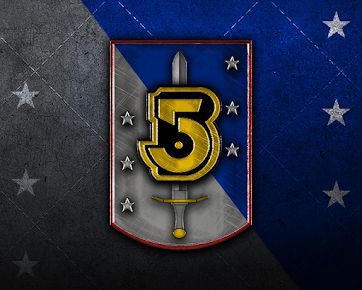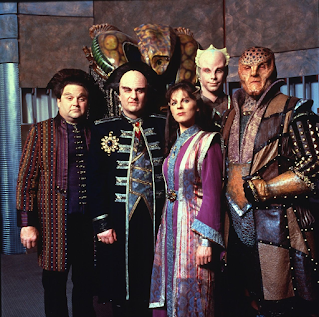Stars Hollow, Connecticut, 2000. Lorelai Gilmore had her daughter Rory at 16 and, overcoming family opprobrium, has succeeded as the manager of a popular inn. Rory herself is now turning 16 and, anxious to give her opportunities she missed out on, Lorelai arranges for her to join a prestigious private school. With funding an issue, she reluctantly asks her rich parents for help. They agree, with the condition that Lorelai and Rory join them for dinner every Friday night. Although this helps the family heal from their problems, it also introduces new issues...and opportunities.
A while back I was in need of a new show to watch that was, in my words, "fluffy and not heavy." After some persuasion, I decided to give Gilmore Girls a go.
Gilmore Girls is a drama-comedy series which ran for seven seasons and 153 episodes from 2000 to 2007 (with a short-lived revival in 2016, which I'll cover separately). The show was created and showrun by Amy Sherman-Palladino, more recently responsible for the hugely successful The Marvelous Mrs. Maisel on Amazon. The show is primarily focused on three generations of the Gilmore family: single mother Lorelai (Lauren Graham), her teenage daughter Rory (Alexis Bledel), and her rich parents Emily (Kelly Bishop) and Richard (Edward Herrmann). The show expands over its run to become an ensemble piece, mainly drawing on the fictional town of Stars Hollow, Connecticut and populating it with a large number of colourful, larger-than-life characters.
Over its run the show concerns itself with three storylines. The main through-line is Rory's growth from a 16-year-old schoolgirl to a 22-year-old college graduate looking for her first job. The second is Lorelai becoming a businesswoman and entrepreneur despite various setbacks. The love lives of both characters receive a lot of attention, with both of them going through multiple partners, marriage proposals and love triangles in search of finding a lasting relationship. The third is the fractious relationship between the two younger Gilmores and Lorelai's parents, who are rich and generous but also snobbish, controlling and sometimes judgemental. Lorelai gave birth at 16 and, overwhelmed by her parents' shame and judgement, moved out and made a new life and family for herself in Stars Hollow, where she flourished. Much of the show's length is dominated by their slow-burning rapprochement despite them constantly relitigating past wrongs.
That description makes the show sound far heavier than it is. For most of its run, Gilmore Girls is much lighter than that. The show's killer app is its witty, quick-fire, fast-paced dialogue, a Sherman-Palladino trademark. The show laces laconic humour with cultural references which will still raise a chuckle amongst older viewers, though younger ones may be lost by the volume of references to movies from the 1950s and 1960s. The show's writing style is oddly reminiscent of Buffy the Vampire Slayer (Sherman-Palladino, like Joss Whedon, cut her teeth on Roseanne), to the point that it sometimes feels like Buffy if you cut out all the supernatural stuff and focused on the school, college and relationship dramas. Oddly, that still works and makes for an entertaining show (albeit one with far less kickboxing vampires).
Witty dialogue only carries you so far, with the show living and dying on its longer-running storylines. These tend to be somewhat soapy, but are helped by the producers tending to group storylines within seasons, with one arc per season before setting up a new paradigm the following season. The seasons lasting 22 episodes each (21 for the first season) means each arc gets a fair amount of development and exploration before moving on. For the first few seasons, the show is extremely adept at fleshing out the characters and developing them and their situations to make for surprisingly compelling viewing.
It helps that the show avoids the mistake of treating its protagonists as saints. Lorelai and Rory are both flawed people and bring some of their mistakes on themselves, which they they have to learn from to improve. Lorelai's cutting humour is entertaining, but she struggles to keep it under control at times and offends people when it's used inappropriately. Both characters can also be flighty in their relationships, constantly reluctant to shut down one possibility to commit to another. Rory is also, in her own words, "spoilt" (especially after reuniting with her grandparents, who dote on her), and some of her problems stem from being protected from the full consequences of her actions. A controversial mid-series storyline where Rory has an affair with a married man is not well-handled, although it's not helped by the other actor involved getting another job, leaving the storyline unresolved. A well-explored idea is the juxtaposition between Lorelai, who had to achieve everything herself and succeeded, and Rory, who has much more support but sometimes struggles to work out what it is that she wants.
The two protagonists are well-developed and well-written and make for engaging enough leads (although arguably Rory does become the more grating of the two, especially in the penultimate season), but they are supported by a huge cast of excellent, entertaining supporting characters. Most important are Kelly Bishop and Edward Herrmann as Emily and Richard Gilmore, who are both excellent. Melissa McCarthy has a pre-stardom role as Lorelai's best friend and super-chef Sookie St. James, whilst Rory's best friend Lane (Keiko Agena) evolves from a sheltered Christian girl with a side-passion for rock music into a drummer in a band. Luke Danes (Scott Patterson) is the show's frequent voice of reason amidst all the insanity erupting around him, although Michel Gerard (Yanic Truesdale), Lorelai's snobbish co-worker, has a lot of comic potential which is unrealised. Liza Weil as Paris Geller is probably the show's most underrated player, evolving from Rory's sworn nemesis at school into a frenemy and then a trusted ally, if a rather idiosyncratic one.
The show also features a number of excellent turns from before-they-were-famous actors: Jared Padalecki (Supernatural) has a long-running role as Rory's first boyfriend Dean (a name more ironic in retrospect), whilst Milo Ventimiglia (Heroes, This is Us) plays Luke's nephew Jess. Sean Gunn (the Guardians of the Galaxy movies) has the best role, that of hapless town everyman and scene-stealer Kirk, who is forever changing jobs and engaging in bizarre money-making schemes.
The show's other strength is its depiction of its fictional small town setting. Stars Hollow is idyllic but increasingly bizarre, partaking of increasingly odd festivals and holidays. The town soon becomes as iconic to the show as Springfield is to The Simpsons, Sunnydale is to Buffy the Vampire Slayer and Pawnee is to Parks & Recreation. It is completely unrealistic - the town is tiny but can afford to throw huge and insane events at the drop of a hat - but it helps add to the It's a Wonderful Life vibe of an idealised Americana that the show is going for.
Where the show falters is its length. Although seven seasons is the standard length for a long-running US TV show, most of them have maybe a bit more stuff going on than Gilmore Girls. It does feel like the show has exhausted most of its story possibilities by the midpoint of Season 5, with Rory at university, Lorelai and her ideal boyfriend hooked up and most people's lives going pretty well. The show makes the mistake at this point of coming up with more and more contrived reasons to upset the applecart. Rory and Lorelai spend part of Season 6 not speaking, destroying the central relationship of the show for no real good reason, and then the show pulls the "hitherto unknown child" card on a character like it's a soap opera in its sixteenth year. Season 6 ends awfully, not helped by Sherman-Palladino quitting due to workload. Season 7 has the other writers performing emergency surgery to rescue things and the show does end quite well (albeit with a reduction in witty dialogue), but clearly not according to the original plan. That plan - for better or worse - was eventually executed in the follow-up mini-series, Gilmore Girls: A Year in the Life, which will be covered elsewhere.
The show also falters at other moments: Milo Ventimiglia is a great actor but Jess is written far too negatively in his early appearances and becomes a more likeable, relatable character only after he leaves the show as a regular (he does recur very intermittently in later seasons and in the revival). A storyline in Season 5 about the town selectman election is very abruptly abandoned with no resolution. Arguably Lane Kim's issues with her mother are resolved a little too easily. Those problems are at least fairly minor and can be overlooked in the long run.
Gilmore Girls (****) is, for most of its length, a witty and funny show with satisfying character arcs, which benefits from making the characters more complex and deeper than they may first appear. The show delves into ideals of family and relationships in a quite entertaining manner. Like most shows lasting for over 150 episodes, it does sometimes struggle to maintain the quality and there are big swings in the story in the penultimate season which are irritating, but it does pull it together for an effective conclusion. The show is available to watch worldwide on Netflix now.












